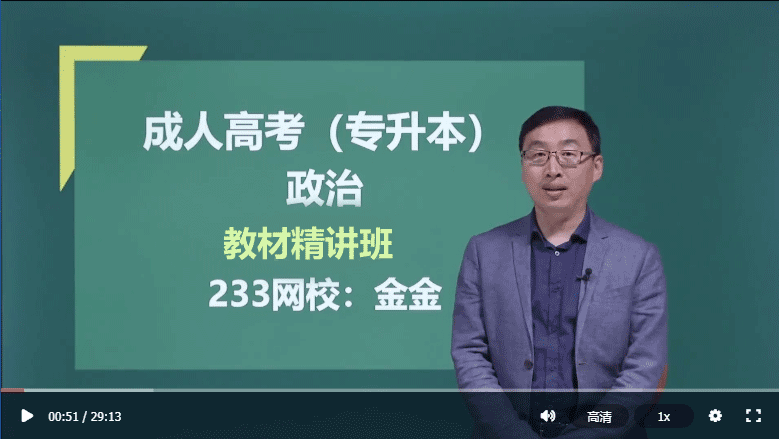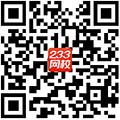四、阅读理解(共15小题:每题3分,共45分。)
根据下面资料,回答下面试题
Dr. Harvey Gates, the noted scientist, might never have discovered the Kamron lizard (蜥蜴) in Blovia, if it had not been for a childhood accident As a boy, he was determined to become a baseball player,but when he broke his arm in practice at the age of fourteen and was forced to stay off the playing field for a while, he took notice of the natural world around him and liked what he saw.
After he had recovered from his injury,he caught a squirrel(松鼠)and raised it as a pet.Soon he was bringing home snakes and other creatures from the woods near his school.
In 1962,he entered Blakeford College and majored in biology. By 1966 he had received his Bachelor( 学士) of Science degree and two years later at Drysdale University, he received his Doctor of Science degree. It was while he was doing field research for his doctoral studies in South America in 1967 that he discovered and named the Kamron lizard. This animal was differ-
ent from others of its kind in that it had only four toes on its front feet. In other respects, it was similar to others of the same family. It could change its color and go for long periods without
food.
第36题单选 Of the four statements,which one best indicates the author's idea?
A.Dr. Gates is a scientist who can always attract the public attention to his research.
B.Dr. Gates is a very famous scientist,though he wanted to be a sportsman at first.
C.Dr. Gates is a scientist who always carries a notebook with him wherever he Goes.
D.Dr. Gates is very popular for his determination to become a baseball player.
第37题单选 In the first paragraph of the passage, the phrase" in practice" means___________.
A.while doing some practical work
B.while studying animals
C.while making up his mind to become a baseball player
D.while playing baseball
第38题单选 In the second paragraph ,the word" creatures" can best be replaced by___________.
A.people
B.things
C.animals
D.living things
根据下面资料,回答下面试题
Some of the notebooks George Washington kept as a young man are still in existence. They show that he was learning Latin, was very interested in the basics of good behavior in society,
and was reading English literature.
At school he seems only to have been interested in mathematics. In fact, his formal education was surprisingly brief for a gentleman, and incomplete. For unlike other young Virginian of that day, he did not go to the College of William and Mary in the Virginian capital of Williamsburg. In terms of formal training then, Washington contrasts sharply with some other early American Presidents such as John Adams, Thomas Jefferson and James Madison. In later years,Washington probably regretted his lack of intellectual training. He never felt comfortable in a
debate in Congress(国会) ,or on any Subject that had not to do with everyday,practical matters. And because he never learned French and could not speak directly to the French leaders,he did not visit the country he admired so much. Thus, unlike Jefferson and Adams, he never reached Europe
第39题单选 Why didn't Washington go to college?
A.His family could not afford it.
B.A college education was rather uncommon in his time.
C.He didn't like the young Virginian gentlemen.
D.The author doesn't give any reason.
第40题单选 Washington felt uncomfortable in Congress debates because he_______________.
A.1 acked practice in public speaking
B.felt his education was not good enough
C.didn't like arguing and debating with people
D.felt that debating was like intellectual training
第41题单选 The reason why Washington didn't visit France was probably that he_______________.
A.didn't really care about going
B.didn't know French leaders
C.eouldn't communicate directly with the French leaders
D.was too busy to Navel
第42题单选 The main idea of the passage is that Washington's education_______________.
A.was of great variety,covering many Subjects
B.was probably equal to those of most young gentlemen of his time
C.may seem poor by modem standards, but was good enough for his time
D.was rather limited for a president
根据下面资料,回答下面试题
We can make mistakes at any age. Some mistakes we make are about money. But most mis-
takes are about people. "Did Jerry really care when I broke up with Helen? When I got that
great job,did Jerry really feel good about it,as a friend? Or did he envy my luck?" When we look back, doubts like these can make us feel bad. But when we look back, it's too late.
Why do we go wrong about our friends--or our enemies? Sometimes what people say hides
their real meaning. And if we don't really listen, we miss the feeling behind the words. Suppose someone tells you. "you're a lucky dog". Is he really on your side? if he says. "You're a lucky guy"or"You're a lucky gal". That's being friendly. But"lucky dog"? There's a bit of envy in those words. Maybe he doesn't see it himself. But bringing in the"dog"bit puts you down a little. What he may be saying is that he doesn't think you deserve your luck.
How can you tell the real meaning behind someone's words? One way is to take a good look at the person talking. Do his words fit the way he looks? Does what he says square with the tone of voice? His posture (~,)? The look in his eyes? Stop and think. The minute you spend
thinking about the real meaning of what people say to you may save another mistake.
第43题单选 From the questions in the first paragraph we can learn that the speaker
A.feels happy, thinking of how nice his friends were to him
B.feels he may not have" read" his friends'tree feelings correctly
C.thinks it was a mistake to have broken up with his girl friend, Helen
D.is sorry that his friends let him down
第44题单选 In the second paragraph, the author uses the example of" You're a lucky dog" to show that
A.the speaker of this sentence is just being friendly
B.this saying means the same as "You're a lucky guy" or "You're a lucky gal"
C.sometimes the words used by a speaker give a clue to the feeling behind the words
D.the word" dog" shouldn't be used to apply to people
第45题单选 This passage tries to tell you how to
A.avoid mistakes about money and friends
B.bring the" dog" bit into our conversation
C.avoid mistakes in understanding what people tell you
D.keep people friendly without trusting them
第46题单选 In listening to a person, the important thing is
A.to notice his tone, his posture, and the look in his eyes
B.to listen to how he pronounces his words
C.to check his words against his manner, his tone of voice, and his posture
D.not to believe what he says
成考试题:2016成考高起点英语考前30天冲刺试题 历年真题及答案
考试报名:2016成人高考报名时间/入口 志愿填报 现场确认

